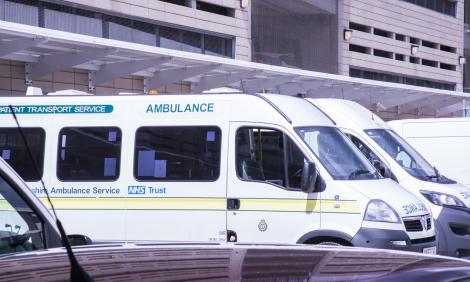Patient Transport Service (PTS) call handler
Patient Transport Service (PTS) call handlers have a key role in ensuring patients who are frail or vulnerable and have no other means of transport get to their healthcare appointments safely and on time.
Working with a range of healthcare professionals, call handlers book transport for all non-emergency discharges, transfers and admissions to and from hospital.
Working life
Based in a central office, you'll book the vehicles that take patients to and from local clinics, daycare centres and non-emergency hospital admissions.
Handling requests for transport from patients and their relatives and also from healthcare professionals such as nurses, you will record patients' details accurately, usually using a computer.
PTS call handlers may speak to the patients themselves. They may also deal with GPs, medical and non-medical health centre staff, PTS crews, voluntary ambulance car drivers, hospital departments and other healthcare professionals.
You will then decide which type of vehicle is appropriate for each patient, depending on their mobility and state of health, and plan the trips to make the most efficient use of the vehicles and drivers.
You will work under pressure a lot of the time, thinking fast and multi-tasking, and keeping a running check on the service and location of all vehicles in your charge. You may work shifts involving some early mornings and evenings.
Pay and benefits
You'll usally be paid at either band 2 or 3 of Agenda for Change. You'll work shifts including evenings, weekends and bank holidays (including Christmas) so you'll receive extra pay for unsociable hours.
You’ll also have access to our generous pension scheme and health service discounts, as well as 27 days of annual leave, plus bank holidays, which increases the longer you’re in service.
Training and development
When you join an ambulance service as a PTS call handler, your training will be a mix of classroom-based and on-the-job learning.
You’ll observe how ambulance care assistants work and undertake statutory and mandatory training that all staff complete on a yearly basis. You’ll complete a series of competency assessments at the end of your training and receive sign off to progress to the live environment.
You’ll then spend time in the contact centre, observing and being coached by a current staff member before doing the job independently.
Where the role can lead
You could progress to become a senior call handler or team leader. You would be in charge of a team of call handlers, responsible for allocating work and drawing up schedules. With further experience you could become a duty manager, responsible for the call centre during a shift.
You could look to move within the other call centres (NHS111 or 999) or train to become an emergency medical dispatcher/call handler, dealing with calls to the emergency ambulance service.
You could look to move within the operations team and undertake further training to become an emergency care assistant. With more experience and training, you could apply to train as a paramedic. You would need to pass entrance exams and meet other requirements before being accepted onto a paramedic course.





